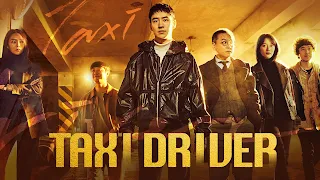Taxi Driver (Miniseries, S1E1-16; Korean; 2021)
With the wisdom proffered by age and experiences learned from the School of Hard Knocks, I am convinced that life is convoluted. Nothing one does is 100% right or good; conversely, not doing is not always wrong. If one can justify his actions and give convincing rhetoric, he can be considered a do-gooder.The miniseries is about this in sixteen episodes and more than 16 hours altogether. In the crooks-filled metropolitan city of Seoul, there is no shortage of murderers and serial killers. After the tedious process of investigating, collecting evidence and prosecuting, the victims and their relatives find that the courts are pretty docile. More often than not, the accused go scot-free. Sometimes, they get away with a slap on the wrist or technical issues. The feeling is that the perpetrators never feel the pain that the victims and their families endured. To add injury to insult, the wrongdoers mock the system, police and the accusers and carry on the things they do best with impunity.
With increasingly intelligent lawyers with crooked minds to catch the obscure loophole in the law, more wrongdoers escape the glance of Lady Justice (because she is blindfolded?). Because law practitioners find better remuneration defending the accused than prosecuting them, the best ones bend over backwards to get them off the hook. Forensic sciences have improved by leaps and bounds, and so have the ways to create the element of doubt. The fear of punishing a single innocent person over letting a guilty person for free is always there. The need to convict someone beyond a reasonable doubt is always the mantra.
Victims of serial killers get together to apprehend to mete their own brand of punishment under the guise of running a taxi company. To help out in their endeavour, they get the help of a local mafia lady boss. Hot on their trail is a young prosecutor who senses something fishy going on under the hood of the taxi company.





No comments:
Post a Comment